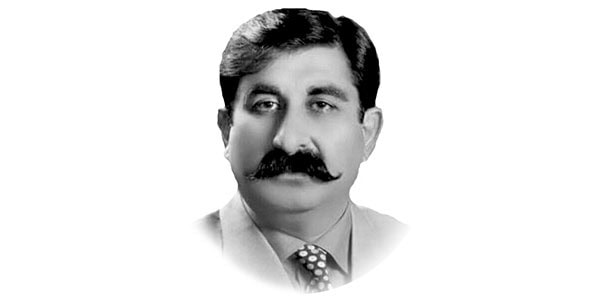Polarisation in Pakistan
CHAIRMAN Pakistan Tehreek-e-Insaf Imran Khan has decided to engage in popular agitation against the Shehbaz Sharif government by weaving a narrative of foreign conspiracy and accusing some as neutral or traitor.
His overnight decision to resign from the National Assembly en-masse was stunning and proved to be an adventurous path to so-called Azadi March for the country and the nation.
Imran Khan is doing politics now not in Parliament but in the streets, rousing anger against Shehbaz Sharif government demanding fresh elections.
It was the incapacity and inability of the ruling elite, its diverse regional backgrounds, personal vested interests in power grabs and engineering of political manipulation to wreck governments and form new ones.
Factions of the elite under different party platforms kept displacing one another from power endlessly until General Ayub Khan took over.
General Azam Khan was very popular and in good control of East Pakistan but Ayub Khan being jealous removed him with General Tikka Khan.
Tikka Khan couldn’t get hold of the situation in East Pakistan and his behaviour caused serious hatred amongst Bengalis.
There is another view that political elites were innocent and they were actually played against one another as puppets by the civil and military bureaucracy.
This is too charitable a perspective to excuse the political elite and their never-ending factionalism which continues till this day, after a long history of more than seven decades.
If they had followed the rules, demonstrated political solidarity on principles and forged a political consensus, the democratic norms and conventions would have gelled overtime.
The recent ouster of Imran Khan, despite the fact that he had the largest party in Parliament with 156 members losing power to a motley group of political factions, the closest second having only 86 members and forming the new government, speaks a great deal about persistent polarization.
The naked factional elite interests have shaped these power plays, often by seeking friendly intervention from the powerful judicial and security institutions.
Pakistan has been a polarized polity and consequently a divided society for the past five decades, and even longer if we look back deeply into its history.
It started with the serious differences among the political elite of the country over the role of the state, quality of federalism, relationship between religion and governance and ideological choices.
One may argue that it could be a normal process in a diverse nation’s struggle to take a definite direction and achieve stability in the formative phase.
One wonders why it would take nine years to write the first Constitution and then its annulment within three years without any general election or transfer of power happening under it.
Generation after generation, coming from the same feudal-tribal social background, Pakistan’s political elite have promoted political values that run counter to nation and state-building.
It is the rapacious character of the Pakistan ruling class, their low commitment to rule of law, accountability and access to power as means of material benefits that have stunted the growth of democracy.
In such conditions, the establishment has assumed the role of a guardian of the state and has regularly managed political conflicts erupting over power struggle among the elite.
The present polarization between the PTI and the rest of the political parties of PDM is not new.
It is a continuation of the same historical pattern, only the main characters have changed. Each successive confrontation has been more severe than before.
The ongoing clash looks like political warfare with no-holds-barred, barely covered with a fig leaf of constitutionality.
This has been in the making for the past several years when Imran Khan challenged the fairness of the 2013 election.
The others, in return, questioned the accuracy of the 2018 vote and vowed to oust him from power by forming a joint alliance, launching street demonstrations and finally succeeding by winning over dissidents from his party, coalition partners and moving successfully a vote-of-confidence motion in the National Assembly.
The normal and expected role of the political elite in any form of political system is working toward stability, order, national unity, solidarity and continuity along with ensuring progress, social and economic development.
The Pakistani elite have done quite the opposite: polarizing and dividing people along ethnic, religious, ideological and narrow political lines.
Generation after generation, coming from the same feudal-tribal social background, they have promoted political values that run counter to nation and state-building in an ethically and demographically diverse society.
The sudden change of heart by four coalition groups supporting Imran Khan and the open betrayal of 20 members of his party have raised many troubling questions about the neutrality of powerful state institutions.
This adds another dimension to the political conflict playing out in the media, civil society and the masses.
—The writer is editor, book ambassador political analyst and author of several books based in Islamabad.










